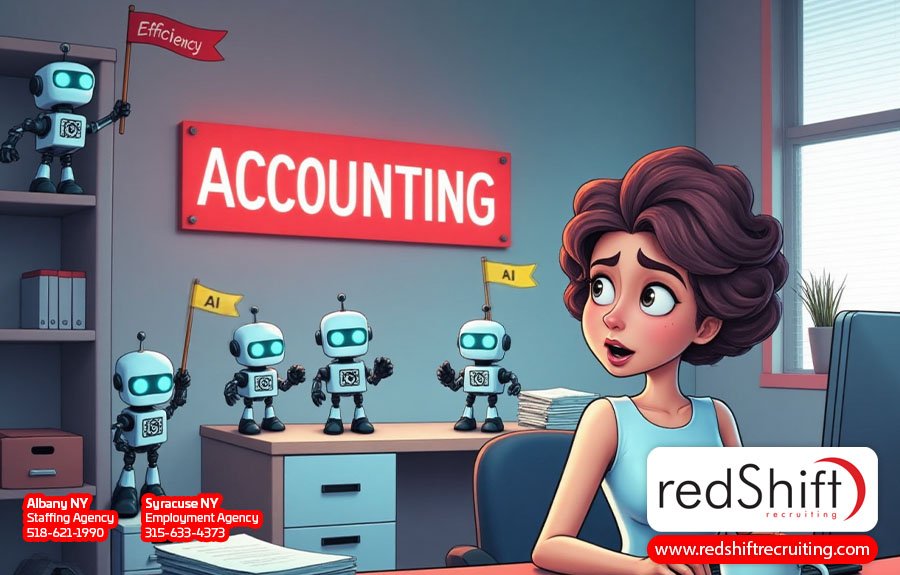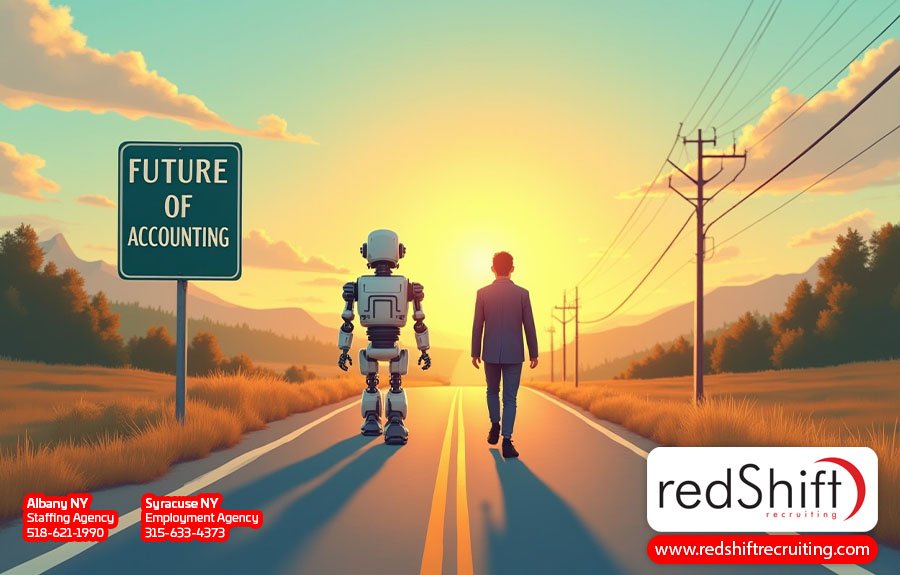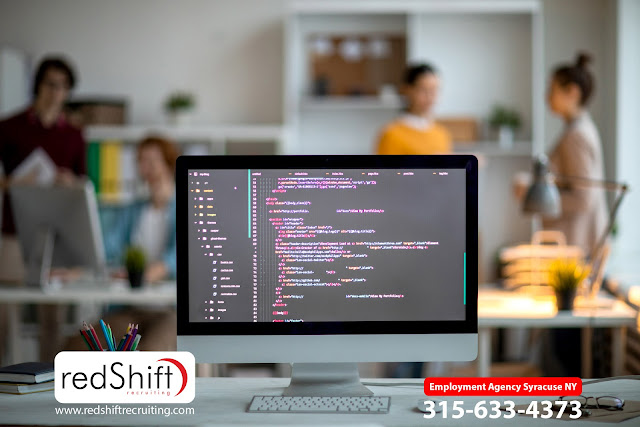Will AI Replace Accountants? A Balanced Look at the Future of Finance

Will AI replace accountants? If you’ve ever found yourself nervously eyeing the latest headline about a new chatbot or automation tool, you’re not alone. The question of AI taking over jobs has sparked more than a few watercooler debates and late-night Google sessions. While the media loves a good “robots are coming for your job” headline, the reality is far less dramatic. From abacus to spreadsheets to automated workflows, history shows that while the tools have changed, the need for smart, skilled accounting professionals never has. As calculators replaced slide rules and spreadsheets replaced ledger books, AI is the latest tool transforming the accounting industry. Rather than making you obsolete, its real power lies in helping you work smarter—if you’re willing to embrace its potential. In this article, we’ll cut through the hype, explore how AI is reshaping (not replacing) the job of the accountant, and provide actionable advice on how to stay ahead as technology advances. Let’s dive in and discover what these changes really mean for you and your career.
What AI Can—and Can’t—Do in Accounting Today
If you're picturing artificial intelligence (AI) systems as a futuristic robot army preparing to lay siege to your cubicle, it's time to take a deep breath and step away from sensational news sites. Today’s accounting AI tools are less focused on replacing human expertise and more on handling the work that slows you down. Specifically, AI excels at automating repetitive tasks, following rules, and analyzing patterns. These are the kinds of routine tasks that eat up time, invite human error, and don’t require professional judgment, but which are essential for accurate, compliant financial operations.
Using AI-powered accounting software, human accountants can speed up (or even entirely automate) time-consuming work such as data entry, invoice processing, and financial reporting. On the flip side, AI's machine learning capabilities make it possible to complete tasks that would normally be overwhelming or nearly impossible for a human, such as analyzing huge volumes of complex data to spot patterns and glean real-time insights that support faster, better decision-making. It can also rapidly sort through thousands of financial transactions, flag inconsistencies, note trends, and detect anomalies that might go unnoticed in a manual review—all in as little as a few seconds or minutes, depending on the task and dataset size. And while tools vary in sophistication, many are already built into commonly used platforms like QuickBooks, Xero, and Oracle.
Here are some practical examples of what AI in accounting can do today:
-
Automated Data Entry and Invoice Processing:
AI tools use OCR (Optical Character Recognition) to extract and organize data from receipts, invoices, and bills, reducing manual input and speeding up the accounting process. -
Fraud Detection and Anomaly Alerts:
By scanning large sets of financial data for unusual patterns or repetitive processes, AI systems can detect potential fraud or errors before they escalate. -
Predictive Analytics and Financial Forecasting:
AI analyzes historical data and current performance to model future cash flow and support high-level decision-making. These are often used by leading firms for cash flow projections and investment planning. -
Tax Preparation and Compliance Checks:
AI can assist by reviewing documentation, cross-referencing figures, and flagging potential issues in tax filings, supporting accuracy and reducing compliance risks. -
Expense Management and Categorization:
Tools automatically classify expenses, enforce policy rules, and generate reports, eliminating many mundane tasks. -
Client Meeting Summaries and Task Automation:
Some AI tools handle meeting transcription and summarization, turning calls into actionable insights. Others automate follow-ups and recurring requests. -
Audit Workflow and Compliance Monitoring
AI continuously monitors accounting functions and documentation to ensure standards are met and audit trails are maintained.
While these are all impressive capabilities, accounting AI tools still have limits. They're excellent at processing data and automating repetitive, time-consuming tasks, but they lack context, ethics, and the ability to make judgment calls. In other words, AI is a very fast assistant—not a decision-maker—and it's only as good as the data it receives and the professionals guiding it.
Even the best artificial intelligence tools depend on the oversight of a skilled human to ask the right questions, interpret the results, and apply insight. While it is true that some largely task-based roles may shrink or shift, the larger role of the accountant is changing—not disappearing.

The Changing Role of the Accountant in an AI World
As AI automates more routine accounting tasks, success in the modern accounting profession doesn't hinge on how fast you can enter numbers, but on how well you can interpret them, spot risks, and guide smart decisions. AI may be transforming the tools, but it’s still human insight that makes the big difference.
From Bookkeepers to Business Advisors
By offloading basic accounting functions with automation, accountants are free to focus on higher-value tasks like analysis, strategy, and leadership. Instead of spending hours editing spreadsheets and reconciling accounts, they can interpret complex financial data, advise on growth plans, and help businesses pivot to meet challenges quickly and efficiently. Even junior accountants can go beyond basic transactional support, building dashboards, spotting early signs of financial risk, and presenting insights to leadership.
With access to better data and more powerful tools, experienced accountants can become trusted partners in strategic financial planning, delivering valuable insights that influence company-wide decisions. Whether it’s reviewing financial reports for key industry trends or identifying tax-saving opportunities, they’re helping drive outcomes, not just document them. This shift makes accounting work more analytical, cross-functional, and impactful.
As more accounting jobs move away from basic recordkeeping toward consultative, decision-support roles, they demand more than technical know-how. Those who will thrive in the accounting space must have strong professional judgment, the ability to communicate clearly with non-financial stakeholders, and a focus on building lasting client relationships. The human side of the job—intuition, ethics, and empathy—has never been more important.
How AI Is Redefining the Accounting Profession
While an algorithm can never truly replace human accountants, emerging technologies are expanding the boundaries of what accountants do and even creating entirely new accounting roles. For example, AI audit specialists help implement automated risk-scanning tools in audits, while data governance analysts manage the integrity and compliance of finance-related datasets, and finance transformation leads oversee the integration of digital tools across financial workflows.
Even within traditional roles, expectations are shifting. Controllers and CFOs may now be expected to stay current with technological advancements, lead AI adoption, and use AI-generated insights to inform high-level decisions across departments. Top firms (including the Big Four accounting firms) are increasingly looking for professionals who can bridge finance and tech. Skills that were once niche, like data analysis, system implementation, or workflow automation, are becoming standard.
Some firms have built dedicated innovation teams or formed partnerships with data science experts to develop in-house AI applications for audit, tax, and advisory. Others are experimenting with plug-and-play AI tools that improve accuracy and save time on routine accounting tasks without major IT overhauls.
At the same time, accountants are no longer cloistered away in department silos. With AI streamlining much of the back-end processing, finance professionals now have more opportunity to work in cross-functional teams, collaborating with IT, operations, and strategy departments to solve broader business challenges.

The New Accounting Toolkit: Skills That AI Can’t Replace
While automation may handle the heavy lifting on calculations and pattern recognition, it still takes a person to understand nuance, ask the right questions, and apply insight in context. As AI tools become more advanced and deeply integrated into accounting software and everyday workflows, the following skills will help keep accounting professionals indispensable and actively involved in strategic decision-making.
Critical Thinking & Judgment
AI excels at sorting data, but struggles with ambiguity. When information is incomplete, conflicting, or influenced by external variables, human judgment and critical thinking skills are essential for making informed decisions. This is especially true in areas like audit review, financial planning, and complex advisory services, where assumptions and risk must be weighed carefully.
Ethical Oversight
As AI tools take on more sensitive tasks, accountants must serve as ethical gatekeepers to ensure transparency, compliance, and accountability. Understanding key ethical considerations and ensuring data privacy and regulatory compliance is critical, especially when automated processes influence hiring decisions, financial disclosures, or tax filings. AI can flag anomalies, but only a human can assess intent, fairness, and potential consequences.
Data Literacy & Analytics
Modern accountants need to go beyond Excel spreadsheets. Proficiency in data analysis tools like Power BI, Tableau, or cloud-based dashboards is increasingly important, but the true skill lies in strategic thinking: knowing what to measure, how to interpret results, and how to use those findings to identify trends and deliver actionable business insights. These insights directly impact the quality of business decisions and make you more competitive (and more difficult to replace!) as new technologies come and go.
AI & Automation Familiarity
Accountants don’t need to learn to code, but it helps to understand how AI tools work. That includes knowing how to give clear instructions—a skill called prompt engineering—so the AI gives you useful results. It also helps to be familiar with tools like robotic process automation (RPA), which can handle repetitive tasks like copying data or matching transactions between systems. When you understand how these tools work and when you need to step in, you can work faster, catch errors, and deliver more reliable results.
Communication & Advisory Skills
Even the best insights are useless if no one understands them. Modern accounting professionals need to be able to explain complex concepts clearly to colleagues and clients who don't speak accounting, and give confident advice based on data-driven analysis. This means translating dashboards into strategic decisions, tailoring insights for different audiences, and building relationships grounded in credibility and clarity. The human touch can’t be automated.
Leadership & Collaboration
As accountants take on more strategic roles, they may be expected to lead cross-functional projects, collaborate with teams outside of the finance department, and align stakeholders around shared goals. These people-first skills are increasingly valued in firms of all sizes and industries.
Adaptability & Tech Curiosity
New tools emerge constantly, and yesterday’s workflow may be obsolete by next quarter. Accountants who succeed will show a genuine willingness to learn, experiment, and adapt—qualities rooted in human creativity, flexibility, and curiosity. This doesn't mean you need to master every new app, but rather purposefully cultivate a mindset that embraces change and actively seeks new opportunities to improve how work gets done.
In short, the new toolkit for modern accountants blends old-school accounting standards with new-school agility, demanding a nuanced understanding of people, systems, and risk, rather than just data and calculations. The human elements of this work are not going away; rather, they’re becoming more valuable than ever.

How to Future-Proof Your Accounting Career (Even If You're Not a Tech Wizard)
So, now that you know how AI is reshaping the accounting industry, let’s talk strategy. The technology is changing fast, but you don’t need to learn to code or tame algorithms to stay ahead. You just need to stay curious, adaptable, and ready to learn to use new tools, instead of waiting to be replaced by them. Here’s how to stay indispensable as AI becomes more common in accounting:
-
Keep Learning:
Embrace continuous learning and stay sharp by earning micro-credentials or certifications in areas like data analysis, AI applications in finance, or modern accounting practices. Even short courses can strengthen your skill set and help you stay adaptable to whatever changes the future brings. -
Work With the Machines:
From AI bookkeeping to auto-generated reports, smart tools reduce busywork so you can focus on the critical aspects of your job that require human intelligence, from meaningful insights and strong communication to sound judgment and ethical oversight. By learning to use tools that make your work impactful, you're taking purposeful steps to bring more value and avoid becoming redundant. -
Lean Into the Challenges:
Areas like mergers and acquisitions (M&A), regulatory strategy, and forensic accounting still demand nuanced human analysis. These are the kinds of problems that can’t be solved with an algorithm alone. -
Be the Person They Ask for Advice:
Businesses need more than number crunchers. When a department leader says, “We're overspending, but we don't know where,” you want to be the person they call. Strengthen your ability to interpret financials, ask the right questions, and become an indispensable partner in decision-making conversations. -
Don't Work in a Bubble:
Gone are the days when the accounting department was sealed off behind walls of ledgers and filing cabinets. As automation takes over routine tasks, accountants are joining cross-functional teams, helping connect financial insight with tech, operations, and business strategy. -
Build Your Network:
Networking keeps you plugged into new tools, fresh perspectives, and unexpected opportunities. Stay connected to others in your field—and stay open to what they can teach you.
The real risk isn’t that AI will replace you—it’s that someone who knows how to use it will.
Think of it this way: refusing to learn AI tools is a bit like refusing to learn to use a computer in the '90s. Fast forward to today, and you can still try to land an office job, but good luck if you’re pecking at the keyboard with one finger. If you’re not adapting, you’re falling behind, and at today's pace, you're falling behind fast.

Frequently Asked Questions
Is Bookkeeping Being Replaced by AI?
AI tools have made huge strides in automating tasks like data entry, expense categorization, and invoice processing—which traditionally made up a big chunk of bookkeeping. But while some entry-level functions are changing, AI isn’t replacing bookkeeping so much as it’s replacing the most repetitive, rules-based tasks. There’s still a need for human accountants who can interpret the data, manage exceptions, and communicate with clients. Bookkeeping isn’t dead, but it is changing. Those who adapt by embracing AI tools and building competitive skills will avoid being redundant and have more time to focus on meaningful, high-value work.
How Will AI Impact Entry-Level Accounting Jobs?
Entry-level accounting roles are definitely shifting. Tasks that used to serve as training grounds—like reconciling transactions or categorizing expenses—can now be handled by automation, but that doesn’t mean there’s no room for newcomers. What it does mean is that the bar is higher. New accountants will need stronger tech skills, more critical thinking, and a willingness to learn tools that streamline routine work. On the plus side, you’ll spend less time crunching numbers and more time learning how to solve problems, advise clients, and contribute to real decisions, and you’ll get to do real analytical and advisory work much faster than in the past.
What Certifications Help Accountants Stand Out in an AI-Driven Job Market?
Certifications that show you’re embracing AI and staying current with modern tools can set you apart. Courses in data analytics (like those from Coursera, LinkedIn Learning, or AICPA), automation in finance, or technology-enhanced auditing are increasingly valued. The CPA is still gold-standard, but adding micro-credentials in AI applications or risk management shows that you’re evolving with the field. It’s less about becoming a tech expert and more about showing you have the mindset and risk tolerance to thrive in a changing profession.
Do CFOs and Controllers Need AI Knowledge Now?
Yes—and not just the basics. While CFOs and controllers don’t need to be AI engineers, they do need to understand what AI can (and can’t) do, how it fits into their organization’s workflows, and how to evaluate its performance and risks. Today’s financial leaders are expected to guide digital strategy, not just sign off on budgets. Embracing AI at this level isn’t optional; it’s part of being a forward-thinking leader. And the more you understand the capabilities and limits of AI, the better you’ll be at protecting the role of human accountants in high-stakes decision-making.
How Can Small Accounting Firms Compete With AI-Powered Services?
Big firms may have more resources to build custom AI solutions, but small firms have something AI doesn’t: personal relationships, niche expertise, and agility. The key is to embrace AI without losing your human edge. Using affordable tools to automate routine work gives you more time to offer personalized advice and build trust with your clients, which is something no algorithm can do. You don’t have to out-tech the big firms; you just have to deliver more value, more insight, and more human connection.
The Future Is Collaborative
So to answer the question we started with: yes, AI will change some aspects of the accounting profession and may reduce or even eliminate some primarily task-based roles—but the future doesn’t have to be about human versus machine. Instead, it’s about humans and machines working together to achieve more than either could alone.
AI is a powerful tool that frees accountants from boring, repetitive tasks, opening the door to more meaningful work: offering strategic insights, building client relationships, and driving business growth. The accountants who will succeed are those who see change as an opportunity, not a threat—those who stay curious, invest in new skills, and harness the power of AI to not just survive, but to thrive. In the end, technology doesn’t have to replace you. . . unless you choose to sit back and let it. Rather than clutching your abacus to your chest and bemoaning the relentless march of progress, you can decide, as generations of accountants before you, to adapt and thrive.


Article Author:
Ashley Meyer
Digital Marketing Strategist
Albany, NY
from Career Blog: Resources for Building a Career - redShift Recruiting https://www.redshiftrecruiting.com/career-blog/will-ai-replace-accountants
via redShift Recruiting

Comments
Post a Comment